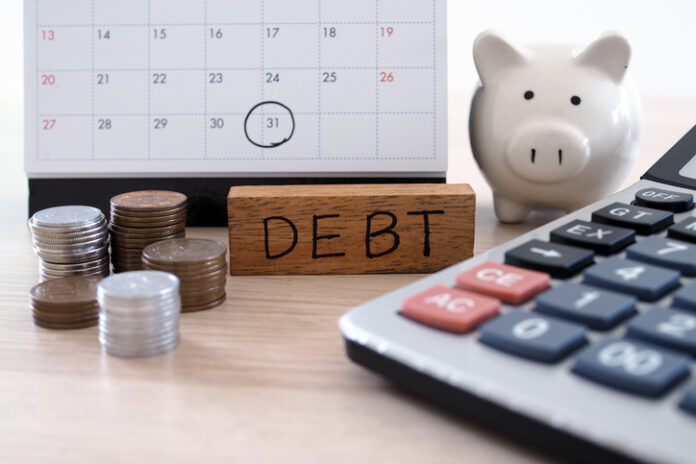Managing debt can be overwhelming, but with the right strategies, you can take control of your finances and pay off your debts more quickly. Reducing debt not only improves your financial health but also relieves stress and opens up opportunities for future savings and investments. Here are some smart strategies you can implement to help you pay off your debt faster.
1. Create a Realistic Budget
A well-planned budget is the foundation of any successful debt repayment plan. Start by listing all your income sources and expenses to understand where your money is going.
Tips for Budgeting:
- Track Your Spending: Use apps or a simple spreadsheet to monitor your daily expenses.
- Identify Cutbacks: Look for non-essential expenses you can reduce or eliminate, such as dining out or subscription services.
- Set Spending Limits: Allocate specific amounts for different categories and stick to them.
By controlling your spending, you’ll free up more money to put towards your debt.
2. Prioritise High-Interest Debts
Paying off debts with the highest interest rates first can save you money in the long run.
Methods to Consider:
- Debt Avalanche Method: Focus on paying off debts with the highest interest rates while making minimum payments on others.
- Debt Snowball Method: Pay off your smallest debts first to build momentum and stay motivated.
Choose the method that best fits your financial situation and personal preferences.
3. Make More Than the Minimum Payment
Always aim to pay more than the minimum required amount on your debts. Even small additional payments can significantly reduce the repayment period and the total interest paid.
Benefits:
- Shortens Debt Term: Extra payments reduce the principal balance faster.
- Saves on Interest: Less interest accrues over time.
- Improves Credit Score: Regular, larger payments can positively impact your credit rating.
Set up automatic payments if possible to ensure consistency.
4. Consolidate Your Debts
Debt consolidation involves combining multiple debts into one loan with a lower interest rate. This simplifies your repayments and can reduce the total interest you pay.
Options:
- Balance Transfer Credit Cards: Transfer high-interest credit card debts to a card with a lower rate.
- Personal Loans: Use a personal loan to pay off multiple debts.
Ensure you understand the terms and any fees involved before consolidating.
5. Cut Back on Expenses
Reducing your daily expenses frees up more money to put towards the management of your debt.
Ways to Save:
- Meal Planning: Cook at home and plan meals to reduce grocery bills.
- Energy Efficiency: Unplug devices and turn off lights to lower utility costs.
- Shop Smart: Use coupons, buy in bulk, and compare prices.
Every dollar saved is a dollar that can help you become debt-free sooner.
6. Increase Your Income
Boosting your income provides additional funds that can help with your debt repayment.
Ways to Maximise Your Finances:
- Part-Time Job: Consider freelance work or a side gig that fits your schedule.
- Sell Unwanted Items: Declutter your home and sell items online or at a garage sale.
- Rent Out Space: Lease a spare room or parking space if possible.
Direct all extra income towards your debt to accelerate repayment and give you the support you need to successfully manage your financial situation.
7. Use Windfalls Wisely
Tax refunds, bonuses, or inheritances can make a significant dent in your debt if used wisely.
Strategies:
- Lump-Sum Payments: Apply windfalls directly to your highest-interest debt.
- Emergency Fund: Set aside a portion for unexpected expenses to avoid future debt.
Resisting the urge to spend windfalls on non-essentials can greatly impact your debt reduction efforts.
8. Seek Professional Advice
If you’re struggling, a financial counsellor can provide personalised advice and negotiate with creditors on your behalf.
Benefits:
- Expert Guidance: Tailored strategies for your situation.
- Debt Management Plans: Structured plans to pay off debts.
- Emotional Support: Helps reduce stress associated with debt.
Many non-profit organisations offer free or low-cost counselling services.
9. Avoid Accumulating More Debt
While paying off existing debts, it’s crucial to prevent new ones from forming. Remember, maintaining discipline is the key to becoming debt-free.
Tips:
- Use Cash or Debit: Avoid credit cards to limit spending.
- Emergency Fund: Build a small fund to cover unexpected expenses.
- Financial Goals: Stay focused on your long-term objectives.
10. Consider Fast and Reliable Personal Loans
In some cases, refinancing your debt with a fast and reliable personal loan can help you pay off high-interest debts more efficiently. By securing a loan with a lower interest rate, you can reduce your monthly payments and the total interest paid over time.
What to Look For:
- Lower Interest Rates: Ensure the new loan has a better rate than your current debts.
- Flexible Terms: Choose a repayment schedule that fits your budget.
- Transparent Fees: Be aware of any upfront or ongoing fees.
Always compare different lenders and read the fine print to make an informed decision.
Take the First Steps to Financial Freedom
Paying off debt faster requires commitment, strategic planning, and sometimes a bit of creativity. By implementing these smart strategies, you can reduce your debt burden, save on interest, and move closer to achieving financial freedom. Remember, every little bit counts, and the steps you take today can lead to a debt-free tomorrow.
Disclaimer: This article contains sponsored marketing content. It is intended for promotional purposes and should not be considered as an endorsement or recommendation by our website. Readers are encouraged to conduct their own research and exercise their own judgment before making any decisions based on the information provided in this article.


























![“Does Everyone Hear Me OK?”: How to Lead Virtual Teams Effectively iStock-1438575049 (1) [Converted]](https://www.europeanbusinessreview.com/wp-content/uploads/2024/11/iStock-1438575049-1-Converted-100x70.jpg)




